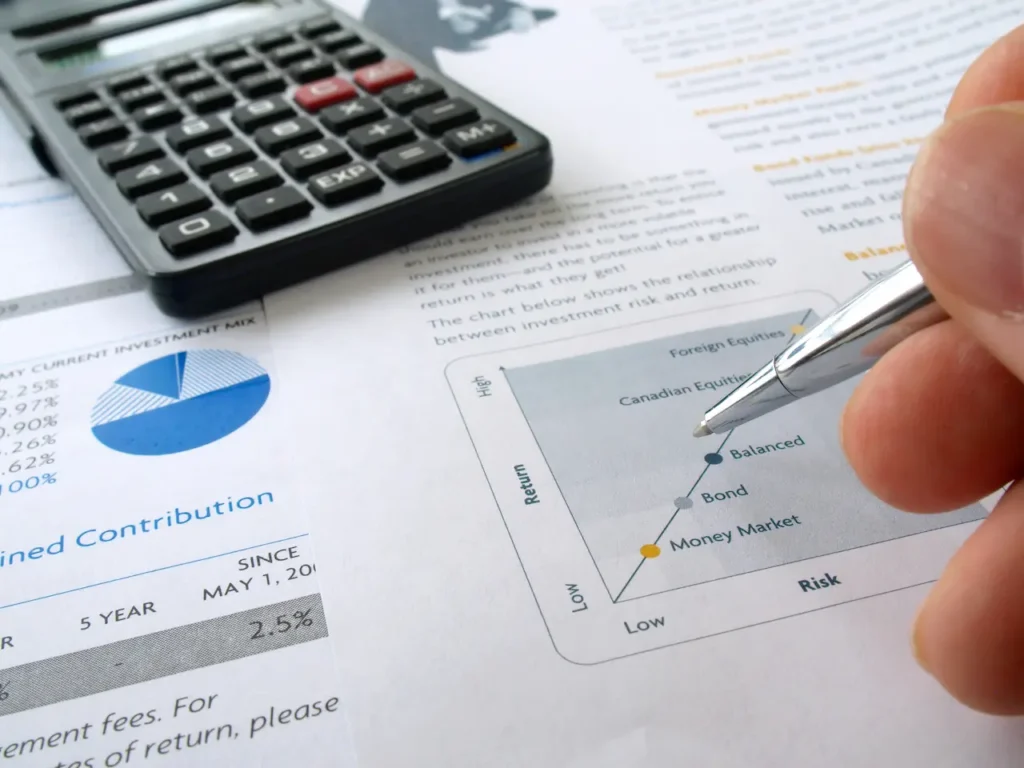Is Now the Time to Hold Shares?
Is Now the Time to Hold Shares?
In a recent interview on ABC Radio Melbourne and Victoria, financial advisor Remo Greco of Sandlam Private Wealth shared insights into the evolving investment landscape. Below, we unpack key topics discussed and their implications for investors.
The Intersection of Climate and Finance
Climate change is no longer a distant concern for the financial world. Regulators like APRA and ASIC are requiring companies to disclose climate-related risks in their annual reports. These risks include:

- Property Values and Lending Risks:
Major banks, like Commonwealth Bank, are already flagging properties vulnerable to flooding and bushfires as potential liabilities. With around 60,000 properties in Australia at risk, the financial implications are significant. - Insurance Challenges:
Rising premiums due to natural disasters such as bushfires and floods are putting pressure on both businesses and individuals. The domino effect impacts investors, especially those with assets tied to these regions. - Investor Awareness:
Superannuation fund trustees must ensure climate risks are factored into their strategies. For individual investors, understanding how climate change could affect their portfolios is vital.
The Current Market Landscape
The past financial year has delivered surprising returns:
- Australian Shares: Up 15%.
- International Shares: Gains of 20-25%.
Despite these strong results, many investors remain cautious, fearing a potential recession. Greco suggests the markets have already priced in key risks, including inflation and employment trends, which are stabilizing. He notes the importance of staying invested to benefit from this period of growth.
Strategies for Navigating the Market
For those wondering how to make the most of current opportunities, Greco recommends a systematic approach:
- Dollar-Cost Averaging:
Invest regularly over time, regardless of market fluctuations. This strategy reduces the emotional burden of timing the market. - Focus on Superannuation:
For individuals near or at retirement age, like a caller named Belinda, prioritizing contributions to superannuation can offer unparalleled tax benefits.
Opportunities in Commodities
Australia’s strong position as a commodity exporter presents exciting opportunities:
- Rare Earths and Battery Metals: These are pivotal for the global shift toward renewable energy and electric vehicles.
- Traditional Commodities: Iron ore and coal remain in demand, with supply constraints pushing prices higher.
While regulations and environmental concerns complicate the development of new mines, they also drive scarcity, boosting profitability for existing operations.
The Role of Disclosure and Transparency
Greco emphasizes the need for businesses to be transparent with investors about climate risks and other challenges. Investors, especially those managing large funds, hold companies accountable to high standards of disclosure.

Key Takeaways for Investors
- Stay Informed: Climate risks are reshaping investment decisions. Understand how these trends affect your portfolio.
- Invest Strategically: Adopt a disciplined approach, such as dollar-cost averaging, to navigate market uncertainties.
- Focus on Long-Term Gains: Superannuation and commodities offer robust opportunities for growth.
As the world grapples with climate challenges and shifting markets, staying proactive and informed will be key to securing financial stability and growth. Whether through superannuation, shares, or commodities, the time to act is now.
The question of whether now is the right time to hold shares is a multifaceted one, influenced by market dynamics, personal financial goals, and broader economic conditions. Investors are navigating turbulent waters, with uncertainty in sectors like construction, rising interest rates, and inflation shaping their decisions.
Superannuation vs. Non-Super Investments: It’s All About the Bucket
A common misconception among investors is equating superannuation with the investment itself. Super is merely the “bucket” holding your investments; the performance of the assets inside it is what truly matters. For those debating whether to keep funds in super or move them elsewhere, the focus should be on understanding the underlying assets and their potential for growth. Super often offers a diversified mix of shares, bonds, and property, all managed for long-term growth.
For older investors, simplifying their financial setup by consolidating funds outside of super can be appealing, but it’s crucial to weigh this against the potential benefits of compounding returns within a super environment. Seek professional advice to align your strategy with your financial goals.
Balancing Debt and Investment
A recurring theme among inquiries is whether to pay off mortgages or continue investing. The answer often lies in personal financial psychology. While comparing interest rates and super returns provides a logical approach, peace of mind often tips the scales. Splitting resources between paying off debt and investing can strike a balance, offering both financial stability and the opportunity for growth.
The Building Industry Conundrum
The challenges in the construction sector add another layer of complexity for those planning to renovate or rebuild. Rising material costs, labor shortages, and the risk of builder insolvency mean that caution is necessary. For retirees or soon-to-be retirees, the risks associated with financing new builds might outweigh the rewards, especially in volatile markets.
Harnessing Super for Property Investments
For those considering using super to invest in property, self-managed super funds (SMSFs) offer a pathway, albeit with restrictions. Properties purchased through SMSFs must be acquired from third parties and adhere to specific regulations. This route demands careful planning and professional guidance to ensure compliance and long-term viability.

Planning for Retirement: Contributions and Simplification
With retirement on the horizon, maximizing contributions to super becomes a pivotal strategy. Non-concessional contributions allow individuals to boost their super balances post-retirement, but understanding the specific rules and thresholds is essential. Similarly, simplifying finances in retirement—whether through reducing super complexities or consolidating accounts—can alleviate stress and streamline estate planning.
KiwiSaver Transfers and First Home Purchases
For those transferring funds from international retirement accounts like KiwiSaver to Australian superannuation, understanding the rules around accessibility and first home schemes is critical. Professional advice is highly recommended to navigate cross-border regulations and optimize outcomes.
Conclusion
Whether it’s navigating superannuation, deciding on property investments, or balancing debt with investment, the key takeaway is the importance of a tailored approach. Seeking advice from qualified professionals can help clarify the options, mitigate risks, and create a strategy that aligns with your financial aspirations.
As the market continues to evolve, staying informed and adaptable is more crucial than ever. Your financial future is shaped by the decisions you make today—so take the time to make them wisely.





